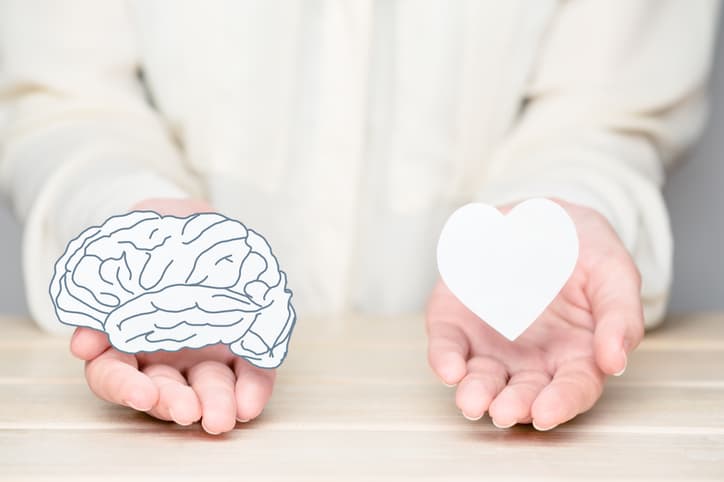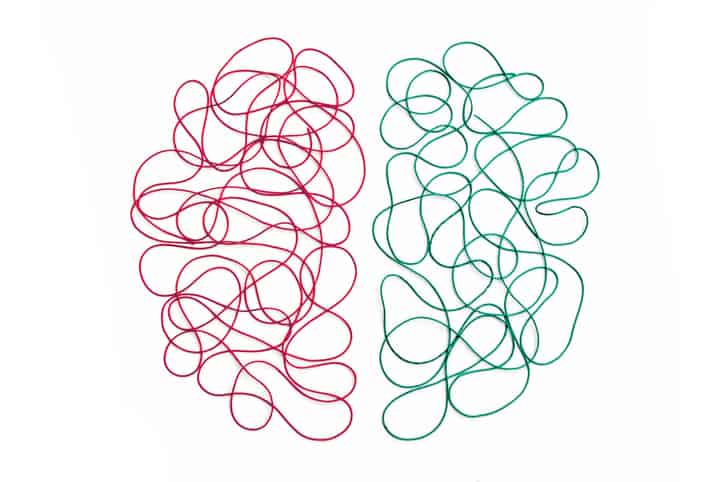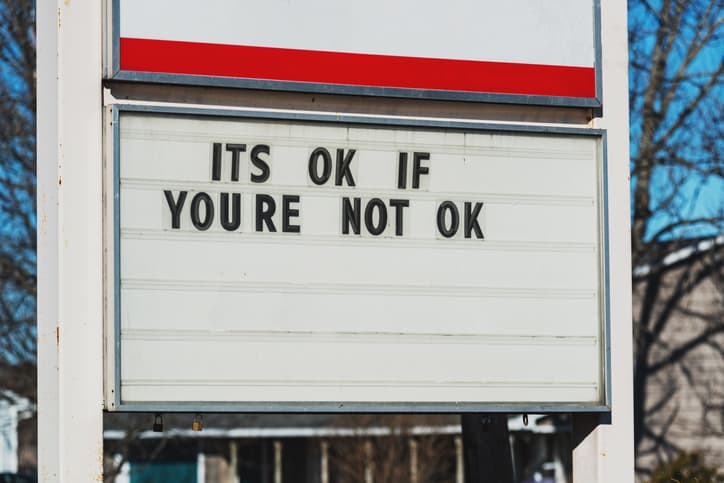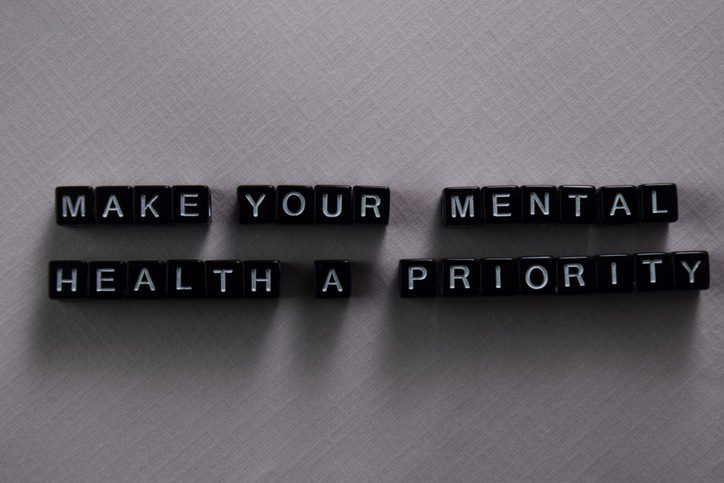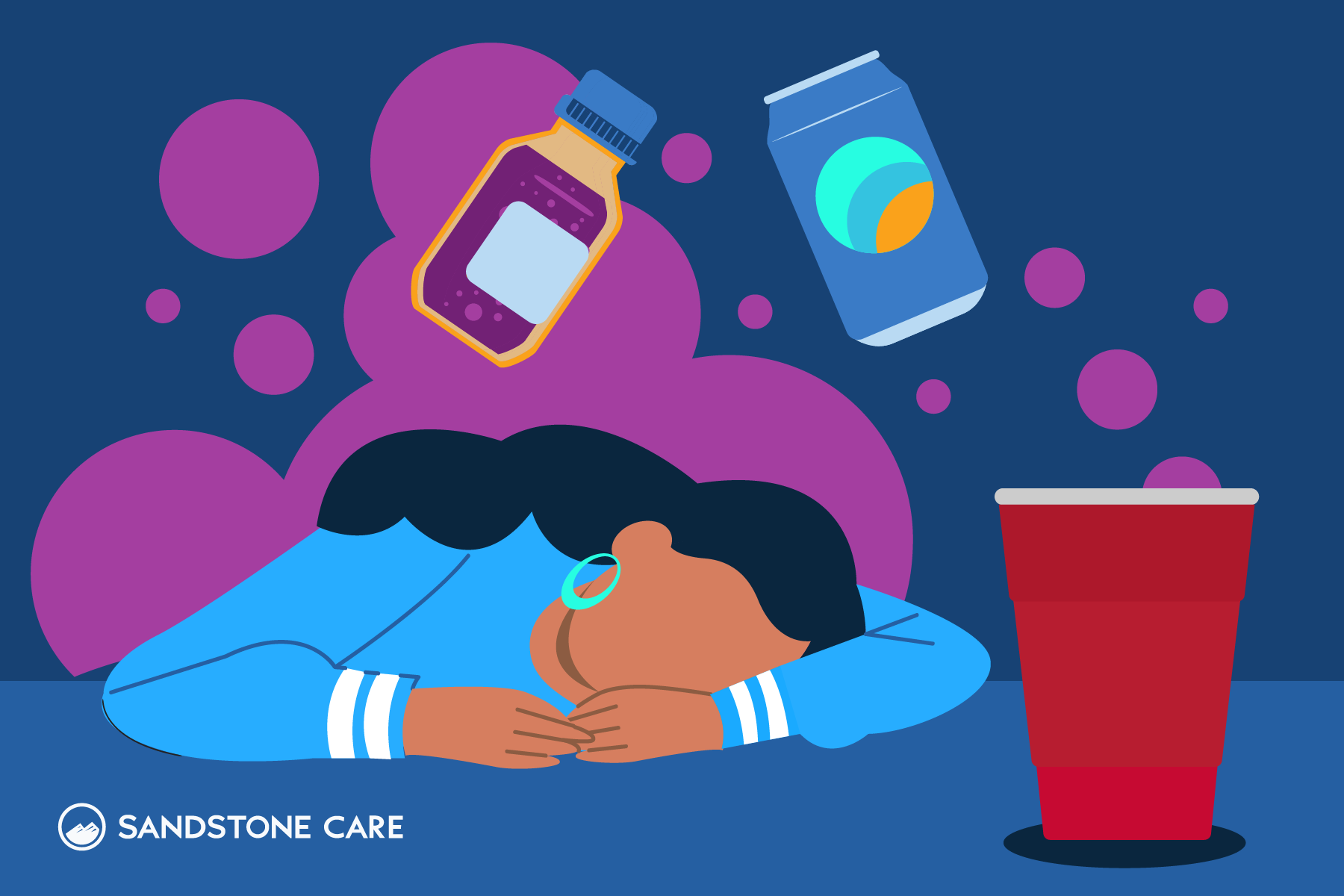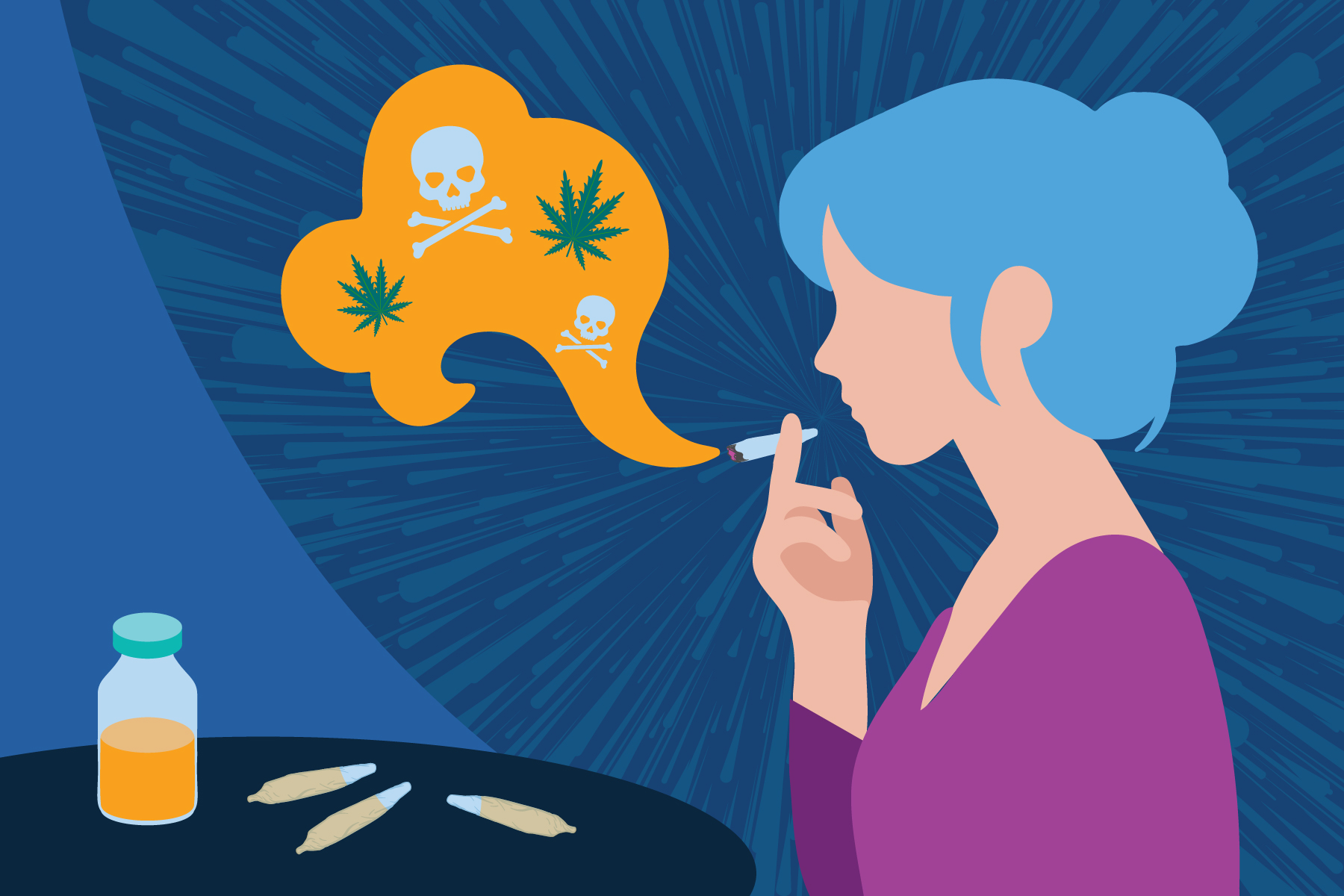Table of Contents
Dual diagnosis occurs when you have a mental health issue along with a substance use disorder.
According to Medline Plus, “About half of people who have a mental disorder will also have a substance use disorder at some point in their lives and vice versa.”
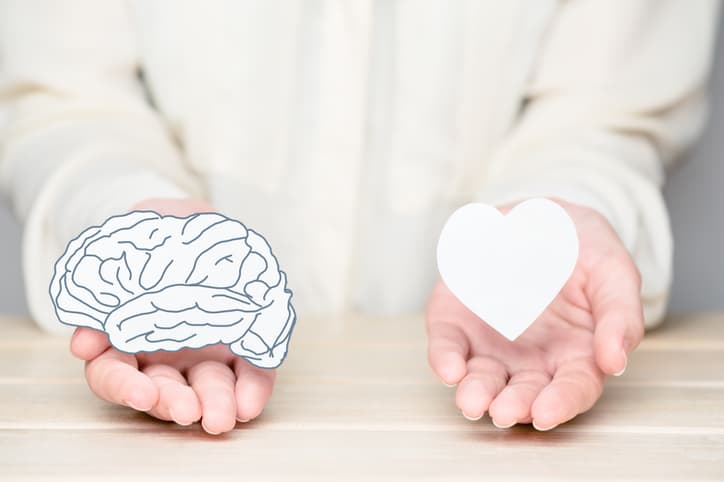
Substance abuse can impact your mental health. Sometimes, substance abuse disorders cause a mental health disorder. Other times, you might use substances to self-medicate for a mental illness.
Knowing which came first can be tricky. You might not know whether you first had a mental health issue or a substance abuse problem.
The National Institute on Drug Abuse (NIDA) states three possible reasons for dual diagnosis:
- You might have common risk factors for both.
- Trauma can be linked to both mental health and substance abuse
- Genetics and family health history is another risk factor for developing a dual diagnosis
- Mental illness can compound a substance use disorder.
- You might self-medicate to cope with a mental health disorder.
- Substance abuse can make a mental health issue much worse.
- Mental illnesses might change the way your brain feels the rewards of alcohol or drug abuse.
- Substance abuse can cause a mental health disorder.
- Alcohol and drug abuse change the way the brain works.
- When you abuse substances, you might be at a higher risk of experiencing trauma.
- While under the influence, you might take dangerous risks, regret your actions, or hurt your loved ones.
- These feelings and experiences can contribute to developing a mental health disorder.
Dual diagnosis of mental health and substance use disorders create a cycle. One issue feeds into the other. Most often, both problems occur at the same time.
While an addiction treatment center can help you with drug or alcohol addiction, you should consider dual diagnosis treatment. You might have an undiagnosed mental health issue driving addiction.
Youth.gov states, “In the United States, 75 to 80 percent of children and youth in need of mental health services do not receive them. This can be for a variety of reasons, including . . . discrimination and negative attitudes attached to seeking help for mental health issues.”
For kids with substance abuse issues, you should seek support that can address underlying mental health issues. Due to the negative stigma around mental illness, many people do not seek help for these issues.
You might not even know that you have a mental health issue until you seek alcohol or drug abuse treatment.
When you have a substance abuse disorder, you are highly likely to experience mental health conditions that make the issue worse. Going to just alcohol or drug rehab might not be enough. It is best to get dual diagnosis treatment for both issues.
What Is Dual Diagnosis Treatment?
Dual-diagnosis treatment programs help you with both mental health and substance use disorders at the same time.
Treating both substance abuse and mental health problems at once is essential. You can’t recover from one disorder without addressing the other. This is why most rehab programs will have some form of dual diagnosis treatment.
Dual diagnosis treatment is about three things:
- Getting rid of harmful substances in your body with detox
- Coping with underlying issues and finding healthy ways to cope with mental illness
- Learning relapse prevention to maintain your sobriety
If you have a substance abuse issue and are actively using, treatment will not be very effective. You will need to rid yourself of harmful substances for recovery.
Detox might be the first step to treating your dual diagnosis.
Withdrawal symptoms during detox can be tough to deal with. Most treatment facilities can help you through detox with medical help.
After detox, you can focus on coping with your mental health issues. With a clear mind, you can learn healthy ways to live with a mental illness. During treatment, you will learn new ways to cope without using drugs or alcohol to self-medicate.
Some mental illnesses might be more common to co-occur with substance use disorder. If you or a loved one has specific mental health disorders, they might be at a higher risk of dual diagnosis.
Common mental health problems that co-occur with substance abuse:
- Anxiety disorders
- Depression
- Bipolar disorder
- Post-traumatic stress disorder (PTSD)
- Attention-deficit/hyperactivity disorder (ADHD)
- Borderline personality disorder
- Schizophrenia and other psychotic disorders
Many of these mental health issues can be treated with individual and group therapy. Most people find cognitive-behavioral therapy (CBT) helpful to treat their mental health. Most facilities over a range of treatment options.
Different mental health issues might require different treatment services. Some dual diagnosis treatment programs offer services to help overall health and well-being. Dual diagnosis can impact your life in other areas, like vocational and social wellness.
You might struggle with finding a job, going to school, in relationships, or other life skills. These problems can lead to substance abuse or worsening mental health when not addressed. Treatment facilities can help with these issues to prevent relapse.
Different treatment services available include:
- Support groups
- Family therapy
- Vocational help
- Social skills training
- Academic support
- Developing confidence and self-esteem
- Life skills (building a routine, maintaining a healthy home, and finding purpose)
- Physical wellness (nutrition, sleep, exercise, and other healthy habits)
Dual diagnosis treatment can be inpatient or outpatient, depending on your needs.
Treatment facilities will try to help you the best they can with where you are in life. You might have family, school, work, or other things to manage while in treatment. It is best to consider what you need to get better when picking a treatment program.
Some of the most common types of dual diagnosis treatment include:
- Intensive outpatient programs (IOP)
- Great if you need a lot of support but have school or family
- IOPs have flexible schedules and usually operate after normal work or school hours
- Helpful if you have a healthy home environment
- It could be a “step down” from more intense forms of treatment
- Partial Hospitalization Programs (PHP)
- PHPs are like IOPs, except they are usually less flexible with their schedules
- You might be discharged to a PHP after an inpatient stay at a hospital
- PHPs require more hours than IOPs, usually during regular business hours
- Could be the next step following a psychiatric hospital stay following a crisis
- Residential Treatment Programs
- You might think of residential treatment as a “rehab program”
- Residential treatment includes substance abuse and mental health treatment while you stay in the facility
- If you are not stable or safe to recover in your home, residential treatment might be best for you
- You will have support 24/7 during your dual diagnosis treatment
- Most residential treatment programs also provide aftercare in the form of outpatient treatment services and support groups
For teens and young adults, finding a program to help launch them into young adulthood is crucial. Young people might not have the skills to succeed without support and guidance to show them the way.
For teens with significant mental health and substance use disorders, you might want to consider an inpatient stay at a residential treatment center. Teens often struggle with fitting in and succumb to peer pressure.
Kids with mental health issues might not feel like they fit in with others. At a residential treatment facility, teens will be around like-minded kids with similar issues. By finding peer support, they can feel better about themselves to thrive with a mental health disorder.
What Is The Difference Between A Dual Diagnosis And Co-Occurring Disorder?
The difference between a dual diagnosis and co-occurring disorders is that dual diagnosis refers only to mental health and substance use disorders.
Co-occurring disorders can be any type of diagnosis that occurs with another. You might have a mental health disorder and a physical health disorder. For example, having cancer might cause depression or anxiety to occur.
You might also have a co-occurring mental and behavioral health disorder. For example, an eating disorder can be a co-occurring disorder with other mental health issues.
You can think of “dual diagnosis” as a specific type of co-occurring disorder.
While a dual diagnosis is a type of co-occurring disorder, a dual diagnosis is specific to mental health and substance abuse. You can also have a co-occurring disorder with a dual diagnosis.
Sometimes, a physical health issue can create a mental health problem. If you have a chronic illness, you might have an anxiety disorder from fears of dying or getting sicker. You might then self-medicate with substances or alcohol.
Chronic pain and chronic illnesses can lead to a dual diagnosis.
You might also experience chronic pain and are prescribed opioids. Prescription opioids might lead to drug addiction if you develop dependency. You might also misuse opioids for pain to deal with depression from being in pain, leading to substance abuse.
In these cases, the co-occurring disorders could be physical issues, mental health problems, and substance use disorders. Each part of your overall health and wellness will impact the others.
Physical health issues can lead to both substance abuse and mental health concerns. Always treat physical health concerns with your health care professional. If you have a chronic health condition, talk to your doctor about any co-occurring mental health concerns.
What Is A Dual Diagnosis Treatment Center?
A dual-diagnosis treatment center helps you with both your mental health and substance use disorder at the same time.
You cannot address one issue without the other. If you try to treat just a mental illness while continuing to abuse substances, you will struggle to get better.
Only getting addiction treatment without help for a mental health disorder won’t help you in the long run. Each disorder feeds into or causes the other. You need to treat both issues at the same time.
At a dual diagnosis treatment center, you get help for your substance abuse while dealing with underlying mental health issues.
Mental health issues might be the root cause of substance use disorders and vice versa. Dual-diagnosis treatment centers have staff members trained in both mental health and drug rehab.
Most dual-diagnosis treatment centers understand that dual diagnosis impacts other areas of health and well-being. You might have additional physical, social, and behavioral health concerns besides your dual diagnosis.
At a dual diagnosis treatment and recovery center, you can expect:
- Mental health professionals, like therapists, social workers, and psychiatrists
- Support staff like recovery coaches and case managers
- Medical professionals to help with detox
- Specialized staffing to help with other issues, like:
- Teachers for academic support
- Job coaches
- Nutrition and wellness counselors
- Experiential therapy, like art, music, and adventure therapists
All areas of your health and wellness can impact your dual diagnosis. If you struggle to find purpose in life, you might feel depressed, which can then cycle into alcohol or drug addiction.
Mental health, substance abuse, social health, and physical wellness are all tied into one another. You should find a treatment center that can help you in multiple areas of your life.
Dual diagnosis treatment centers can help you develop a treatment plan for aftercare when you leave the facility or complete your treatment program. You might continue attending support groups as an alumnus of the facility.
Many treatment centers offer support and therapy for family and loved ones.
For long-term recovery, having support from family is crucial for mental health and sobriety. For teens and young people, family is especially important. Teens and young adults living at home need a safe and secure home to continue their early recovery.
Treatment centers often teach parents how to hold your child accountable and keep them safe when they return home from treatment.
Are There Different Treatment Programs For Dual Diagnosis?
There are different treatment programs for dual diagnosis, depending on your mental health disorder, type of substance abused, and age group.
Some treatment programs help with only addiction and substance abuse treatment. They might offer support to help you get clean and sober. Yet, without mental health treatment, you might struggle to maintain sobriety.
Mental health treatment centers might not address your substance abuse disorder. While you might learn more about your mental illness, you might relapse due to drug or alcohol issues.
However, by treating both disorders in one place, you can get the support that you need to live a happy and healthy life.
Dual diagnosis rehab is not a “one-size-fits-all” approach to treatment. You might have unique needs based on different factors about your dual diagnosis. You also might need less or more support than others for dual diagnosis treatment.
Dual diagnosis treatment centers help get peers with similar problems together.
Peer support and group therapy can help you deal with a dual diagnosis. Support is one of the essential parts of treatment and relapse prevention. You might feel more comfortable in a treatment program for people with similar issues.
For example, you might not relate to a person with a borderline personality disorder if you have anxiety. While you might have common ground with a dual diagnosis, both of these mental health issues require different types of care.
Some treatment programs have different support groups and treatment services for specific disorders. You might be in group therapy with others who have a similar diagnosis related to your mental health or substance use disorder.
Other programs specialize in treating specific disorders. They might have an excellent program for those with bipolar disorder yet do not have staff trained for personality disorders. It is best to find a treatment center that can help with your disorder.
Some treatment centers specialize in the types of substance use disorder.
An alcohol rehab center might be much different from an opioid clinic. If you struggle with heroin or other hard drugs, you might need medication-assisted treatment (MAT) to best help you.
Additionally, depending on the severity of your substance abuse disorder, you might need more support.
The first stages of treatment can vary depending on what substance you used and how much you use. If you are a heavy user, you might have worse withdrawal symptoms during detox than someone using less often.
Some treatment programs might be better able to handle someone with severe withdrawal symptoms than other programs.
Depending on the symptoms of you or your loved one, you might want to consider the level of care needed. Some programs might be more restrictive, but this could be what you need.
Also, consider what types of therapy you respond best to. If your loved one struggles to open up, then a facility with experiential therapy might be better than one with only talk therapy.
Most dual diagnosis treatment programs will be client-centered, meaning that you drive the treatment plan. Family members can get involved as well, either by getting support for themselves or helping to plan treatment.
The most important thing is to find a treatment program that will work for you or your loved one. A program can only give you what you put into it, so find a program that best matches you or your loved one’s needs.
Some treatment centers treat either substance abuse or mental illness. Our dual diagnosis treatment center can help you with both disorders. Sandstone Care is here to support teens and young adults with substance use and mental health disorders. Call (888) 850-1890.

